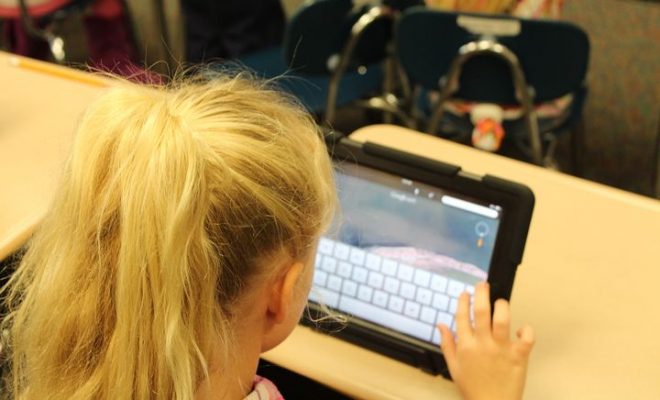9 Things That Educators Should Know About Gamification

Gamification has grown in popularity as teachers and educators realize the wealth of potential that games offer their students, no matter the age. Fast fading is the idea that video games are a waste of time. Children these days are among the most tech-savvy people precisely because they have been playing games on a range of devices for nearly their entire lives.
Gamification can be used in many different ways. Whether your students need a better set of flashcards, hands-on experience, or a more memorable experience, gamification gives you the tools to create something that will engage your students. With all of that being said, what are the essential things that educators should know about gamification, in order to harness its full potential? Well, not to worry, we decided to do the work for you. Here are the things that educators should know about gamification.
1. Gamification in education may optimize the brain’s processing of new information. This may be facilitated by the general aspects of gamified lessons, with the audio-visual presentation, minimized bites of schematized information, short time lapses, and often repetitive patterns.
New information is lost unless it is stored in our long-term memory through a multi-layered process involving attention, perception, selection, organization and integration of information. The first relay of new data is in our working memory, which can handle only a small amount of information at a time. Miller has suggested that the human brain can process seven pieces of information at one time, which will be lost in 20 seconds if not further processed to reach long-term memory.
The brain processes information in the working memory using two channels—visual and auditory. When information is presented using both channels, the brain, i.e. working memory, can accommodate more new information. However, information overload which may hinder the integration of the new information into long-term memory. Therefore, small chunks of information need to be presented in an organized fashion. This allows the brain to integrate and organize new information to existing schemas in our long-term memory.
Moreover, recent research has suggested that the attention span in humans has decreased from around 12 to 8 seconds. This change has been attributed to the digital revolution, aside from its beneficial effects including faster reaction time and increased ability to multitask. These findings stress the need to adopt modern ways, such as gamification, to transfer new knowledge and information to students and teachers alike.
2. Gamification in education can improve motivation and engagement. Game elements such as immediate feedback and earning badges for completing the challenges successfully are strongly influential on increasing the students’ drive in engaging in these games even within the walls of a classroom.
Additionally, the social component of gamified learning, whereby students gamify in groups, leads to loads of benefits on the brain function. Indeed, social, intellectual engagement activates neurotransmission in the brain, brain plasticity, and rewiring, and mitigates brain inflammation and the deleterious effects of oxidative stress on the brain. The beneficial effects of social interactions have been interestingly highlighted in delaying dementia in the elderly population.
3. Gamification modifies the brain’s reward and pleasure center and ameliorates learning. It is well established that games, whereby a person wins or receives positive feedback, can activate the brain’s pleasure circuits by inducing the release of the neurotransmitter dopamine. Educational games are suggested to have the same influence given their elements of winning challenges or successfully achieving a goal. This pleasure during gamified education results thus in a long-lasting affinity for the academic subject or for solving otherwise complex problems.
Furthermore, the influence of games on the pleasure center has important effects on learning per se. Indeed, reward-related signals have been reported to promote the storage of new information into long-term memory through dopaminergic modulation of the midbrain, which activates the hippocampus, a structure primarily involved in learning and memory. Dopamine is also involved in controlling neuronal plasticity within the hippocampus, which is a significant brain phenomenon underlying the acquisition of new information and skills. Moreover, hippocampal memory has been reported to improve following the practice of video games in adults through the stimulation of the brain circuits.
4. Teacher professional development can be gamified. To gamify professional development, instructors need to focus on student involvement. Often, this involves increasing the social requirements in the learning experience. Points based progress and leaderboards can also motivate those participating in the training to keep pushing forward. However, it is important to find options that bring more to the experience than a simple novelty. If the information isn’t valuable, the intrinsic motivation related to the learning process will decline. Additionally, the process needs to be streamlined to fit efficiently into a teacher’s otherwise busy day.
The priority of all professional development should be on creating quality content first and then adjusting the delivery system to increase motivation and overall engagement. Part of gamification is making the experience fun. Celebrate achievements along the way, and give participants a chance to learn from their mistakes and try again. Let the teachers earn shareable badges along the way, and create cumulative profiles of their accomplishments throughout their careers.
5. Gamification benefits struggling students. It is hard to engage struggling students in the classroom. If they are having trouble grasping the material, they may be less inclined to be involved in a traditional classroom lesson. These aren’t the kids that will volunteer to go to the board to work out a math problem; they aren’t raising their hands to answer questions, and may even be afraid of asking for help.
Adding a video game component can increase their comfort level. Various studies have shown that African-American students traditionally game more than their Caucasian counterparts, so this can be effective for reaching out to certain minorities in the classroom. It gives them a system that they enjoy, allows the information to be conveyed in a new way, and may feel like a more level playing field psychologically.
Not every student learns well by simply reading the textbook or managing homework. Some students prefer auditory input while others need hands-on demonstrations. Video games have the ability to combine all of these traits into a single learning system. And the increased entertainment value might make it more interesting to students in general.
In some cases, it may help students achieve flow, a psychological state where the person is fully immersed in the task at hand. This increased focus and absorption helps improve performance by completely engaging the brain.
A competitive spirit can also be fostered through video games. Students that are struggling in the grades department may find more intrinsic motivation through video game-based success. Leaderboards and level advancement can help students see how they are improving, even if they don’t immediately connect the achievement with learning.
6. Gamification doesn’t hurt high achievers. One of the points brought up against gamification involves the students who are already succeeding. The thought is that time spent gaming is a waste for those who don’t need the format to excel. But gaming within the learning context still benefits high achievers. It provides new methods for exploring knowledge and integrating new information and adds an element of fun that may be lacking with traditional mechanisms.
7. It is easy to gamify science. There are many subject areas that can be gamified; however, games can be particularly helpful when teaching students science-based lessons. Educators can use two primary methods to gamify a particular subject or curriculum. Teachers can incorporate science-based games into their curriculum, or they can find ways to create a game-like experience within the structure of the coursework. The first method, adding games into the curriculum, can be easier for teachers to incorporate into lesson plans. Teachers at any level can gamify science with a few modifications to their lesson plans. The key for gamifying any lesson is that it should be fun for the students. When students are engaged with the material, knowledge acquisition will occur more easily as students begin to enjoy learning.
8. It is easy to gamify math. For educators, gamification can be applied to a variety of subjects, including math, to increase student’s motivation and subsequently increase student proficiency. Gamifying math lessons does not have to be difficult; teachers can use a variety of techniques to add game elements to their courses. Educators primarily use one approach for gamifying math; they incorporate math-based games into the existing curriculum by inserting them into relevant lessons to replace less engaging content. There are several game elements that are of particular importance to the motivation and engagement of students including competition, rewards, cooperation, self-driven pace, and feedback. These elements can be found in most video and board games. One very popular video game that can be utilized in the classroom is Minecraft (https://education.minecraft.net).
9. It is easy to gamify reading. Gamifying reading is not as hard as it seems. First, start by getting rid of the old terminology when talking to your students or when planning for lessons. Instead of having assignments and tests kids will participate in challenges, quests or battles and they have choices in how they demonstrate their knowledge. In this way, the students are able to work to their own strengths and to also incorporate creativity in their application of the knowledge. Including the class as part of the team of “game designers” gives them ownership over their learning, which is a powerful motivator.
For example, after reading a specific novel (the quest) students can choose between one of several challenges or battles to show their understanding. They could write an essay, design a board game, put on a play or perhaps create a PowerPoint presentation. Each of these challenges would equate to specific achievement badges, game points or even different player levels
Conclusion
As you can see, there are a lot of things that educators need to know about gamification, in order to unlock its full potential. Did we miss anything? If so, please leave your suggestion in the comment section below. We would love to add it to the article as an update.






